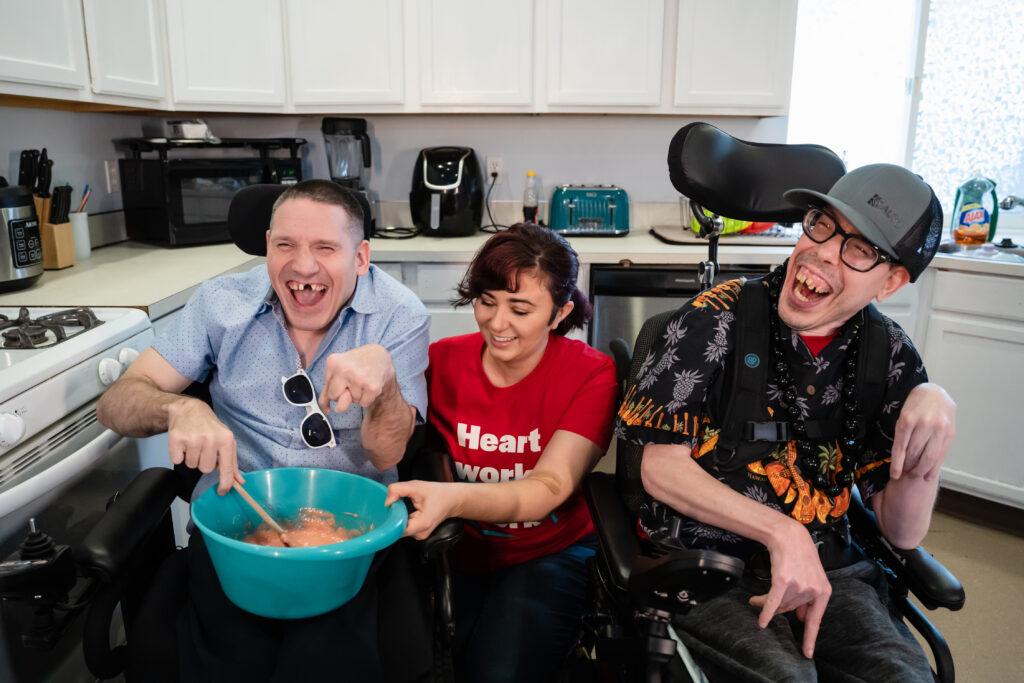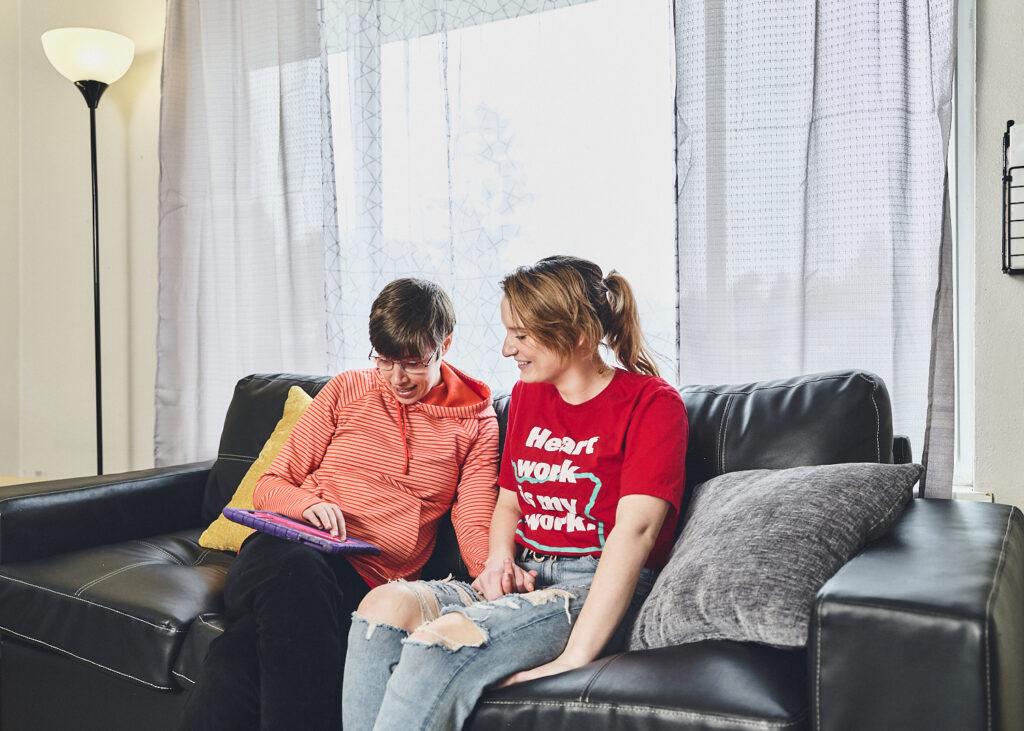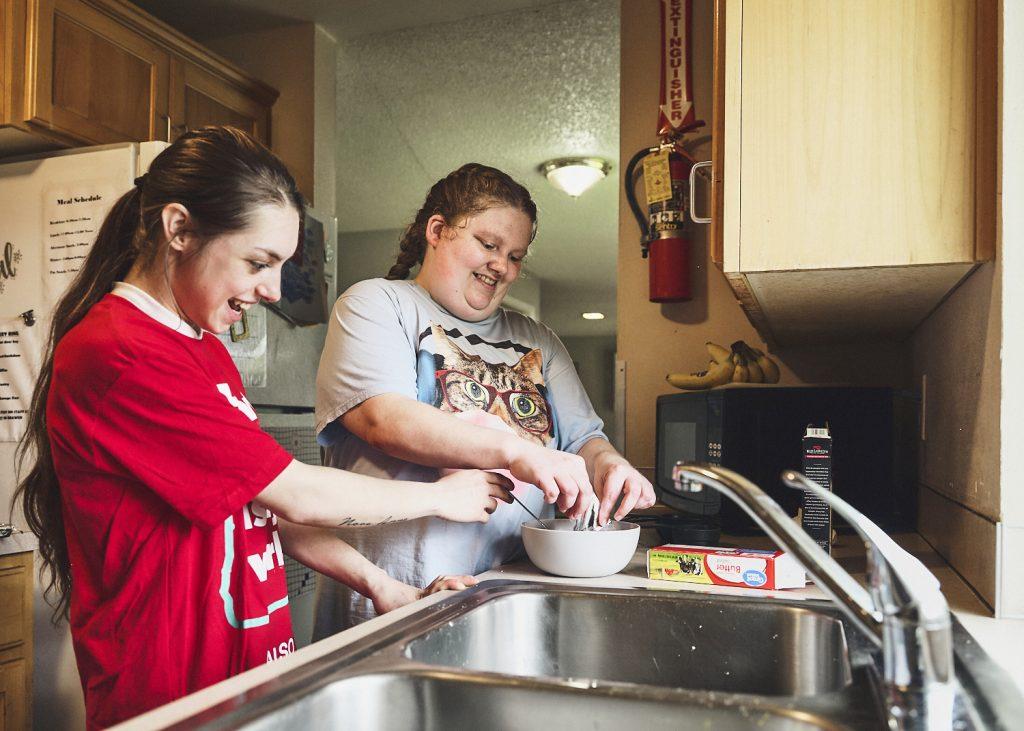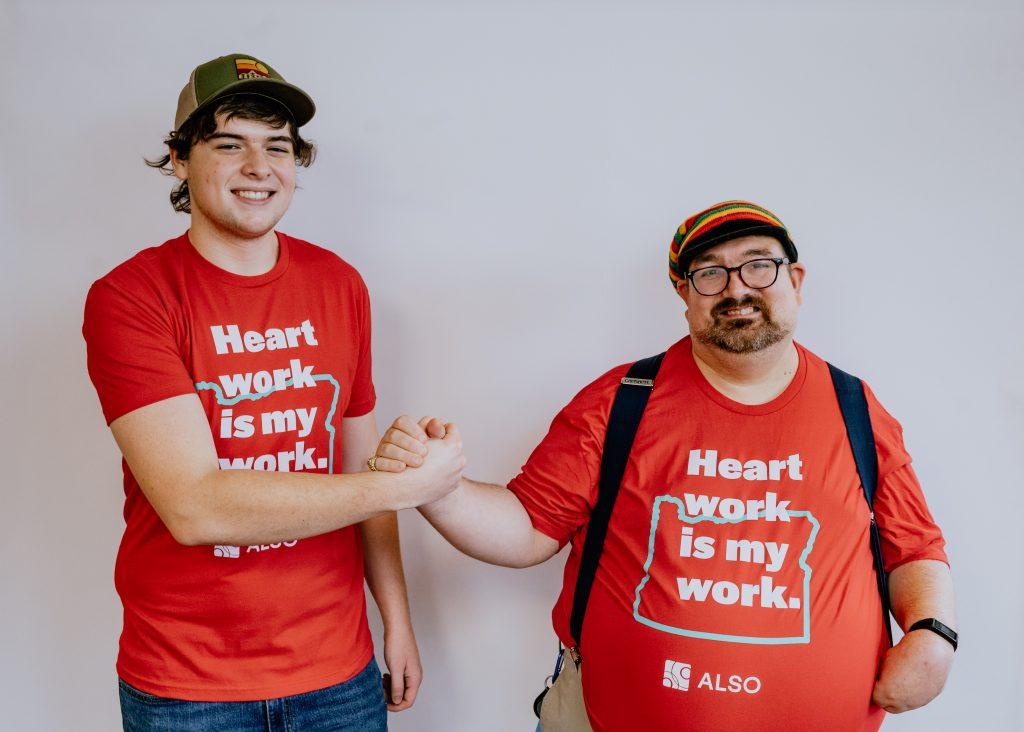Explore the ALSO Children’s Homes Wishlist and help fill the season with joy for the children supported by ALSO.
Explore the ALSO Children’s Homes Wishlist and help fill the season with joy for the children supported by ALSO.

As we celebrated National Developmental Disability Awareness Month (DDAM) in March 2025, we took stock of how far we’ve come in promoting full inclusion, equal opportunities, and other rights of people with DD.
The theme of DDAM in 2025 is aptly titled, “We’re Here All Year” – meaning that the rights and contributions of people with DD must be highlighted all year long, not just in March.
Today, ALSO shares how advocacy significantly impacts the lives of people with DD, their family members, and, of course, the communities in which they live and work.

“I am different, not less.”
This statement was made by Dr. Temple Grandin, world-renowned animal behaviorist who also has autism. She reminds us that being different does not make anyone less deserving of human rights (and responsibilities) than anyone else.
Advocacy for people with DD is important because, not too long ago, having DD meant a life of living in institutions, group homes, or, at best, working for pennies in sheltered workshops.
Fierce advocacy spurred the implementation of numerous rights that those with DD enjoy in the 21st century. A seminal moment was the passing of the Americans with Disabilities Act (ADA). This federal law, modeled after the Civil Rights Act, recognized that disability rights were essentially human rights.
Advocacy service organizations continue to work for equal access to community living, competitive employment, and equality in health and education. In addition to strengthening the narrative of the inherent value of full inclusion of people with DD, advocacy groups are collectively sharing resources and building coalitions in 2025.
Disability rights advocacy existed in the 1800s and gained momentum in the 1960s and 1970s.
In the 1990s, the phrase ‘Nothing About Us Without Us’ became a strong rallying cry in support of:
People with DD could be considered some of the major trailblazers of self-advocacy. Self-advocacy skills have the following benefits:
Working together can move mountains! Disability advocacy organizations play a major role in advancing the rights of people with DD. Some organizations focus on community living and health care. While others specialize in legal services, disability benefits, or mental health services.

Advocacy has dramatically improved the daily lives of people with developmental disabilities, their families, and surrounding communities.
Federal laws, such as the ADA, have created designated protection for people of all disabilities. Communities are more accessible, and there’s better access to education, housing, and employment. Without such policy reforms, many more people with disabilities would be living in institutions or other long-term care facilities.
Multiple governmental and nonprofit organizations participate in DD advocacy.
Recent challenges regarding Diversity, Equity, and Inclusion initiatives may interfere with funding, resources, and other protections. Because of these changes, it wouldn’t be surprising if social stigma related to disabilities ticks upward.
Those in the disability community will also be affected by decreased resources for disability benefits, social security, and Medicaid. This will undoubtedly decrease access to services and create increased legal and policy barriers to disability rights.

At ALSO, we take the theme of DDAM seriously all year long. We build awareness of full community inclusion and the supreme importance of disability rights in every aspect of society.
ALSO is proud to offer:
ALSO engages with advocacy organizations, community members, employers, educators, and policymakers. We know the world is complicated, and we need the minds, hearts, and hard work of people of all abilities to create a better place for everyone.
This means that we also need you.

Sign up for our newsletter to get our latest news, content, and job opportunities.
Help us ensure that everyone has the same opportunities in their home, workplace and community. Let’s make dreams!
